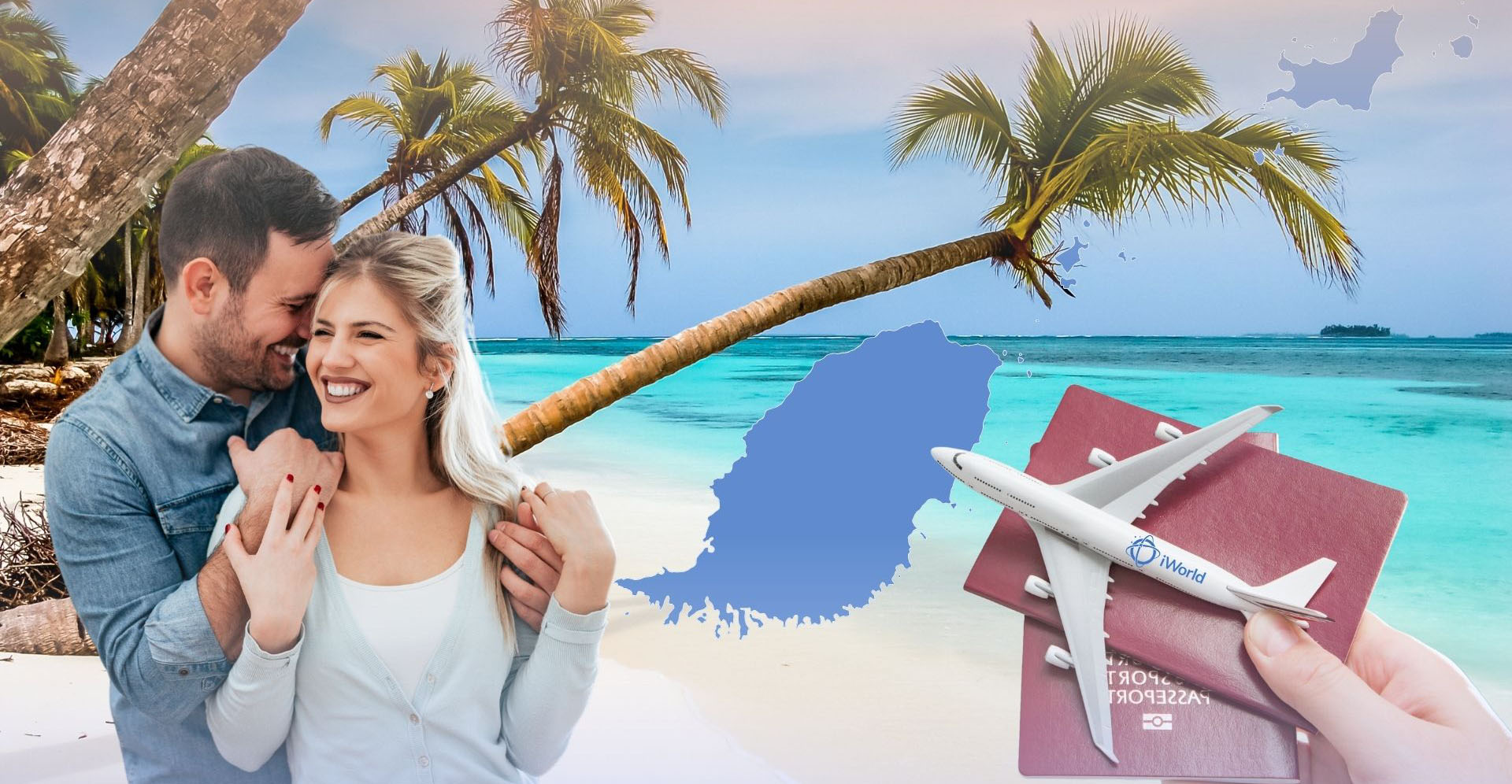A Caribbean passport is a document issued after obtaining citizenship in one of the Caribbean countries. One can obtain the citizenship through an investment of at least USD 200,000. The process requires a minimum of two months.
People obtain Caribbean citizenship for travel freedom, tax optimization, or as a backup for themselves and their loved ones. These programs are most often chosen by businesspeople, IT professionals, families with children, and individuals who hold significant wealth.
Which countries offer Caribbean citizenship by investment?
The most popular and fastest way to obtain Caribbean citizenship is through investment. The requirements are simple: sufficient funds, an impeccable reputation, and proof that the funds are from a legal source. However, there are over 30 countries in the Caribbean, and not all of them offer investment programs.
Saint Kitts and Nevis
Saint Kitts and Nevis, the birthplace of the first U.S. Secretary of the Treasury, Alexander Hamilton, is the smallest Caribbean country, with an area of just 261 km². It was the first country in the region to launch a citizenship-by-investment program in 1984. Over the years, the investment requirements and amounts have been revised numerous times.
Currently, to obtain a Caribbean passport, you must invest at least USD 250,000 in an approved economic growth project or sustainable development program. There are also options for those planning to purchase real estate, including developer-owned properties and apartments starting at USD 325,000 and private villas and houses starting at USD 600,000.
Whether you need to pay an additional fee for a passport for relatives depends on the program you choose. For example, the amount remains the same for a family of 4 investing in sustainable development projects. However, you will need to pay an additional fee if you include additional minors (USD 25,000) or adult dependents (USD 50,000) in your application.
In addition to the basic investment, you must also pay a due diligence fee: USD 10,000 for yourself and USD 7,500 for each family member over 16. Applications are processed within 4-6 months. For certain programs, you will need to pay additional fees after receiving a decision. For example, when purchasing real estate, the fees are:
- 25 000 USD for yourself;
- 15 000 for the spouse;
- 10 000 for each child under 18;
- 15 000 for adult dependents.
Antigua and Barbuda
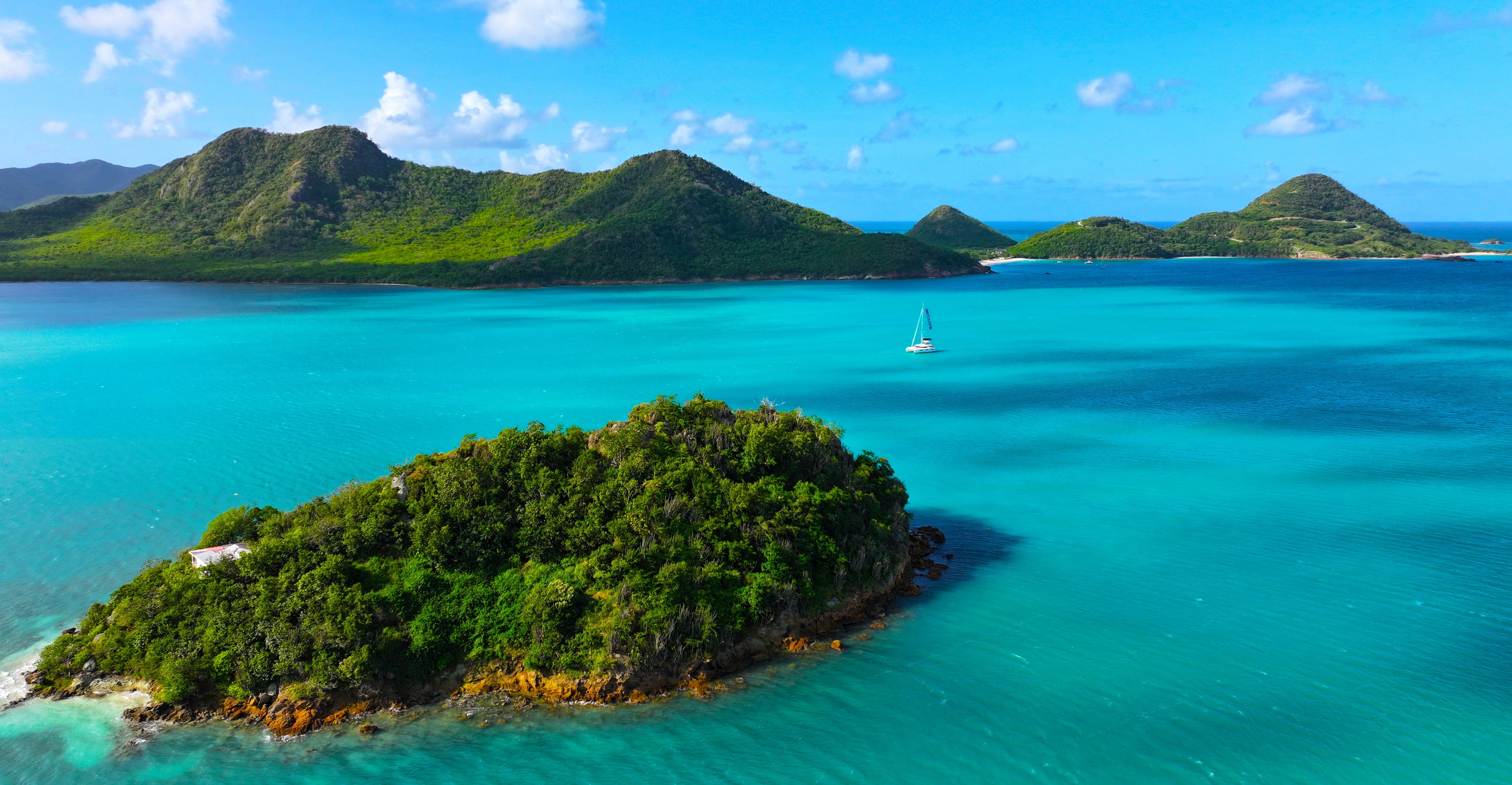
Citizenship in Antigua and Barbuda can be obtained for a donation of USD 230,000. This is a voluntary donation to the National Development Fund. Another option for large families (minimum of 6 people) is to invest USD 260,000 in the University of the West Indies. The country also offers real estate options; you will receive second citizenship if the property is valued at over USD 300,000. There are 2 options for those who wish to invest in local businesses:
- Investing at least USD 1.5 million in a company by yourself;
- A total investment of USD 5 million in a business with partners, each investing at least USD 400,000.
If only the investor is applying for citizenship, a government fee of USD 10,000 is required. If the entire family plans to obtain passports, an additional fee is usually required. For a family of 4, the government fee is USD 20,000. These rules do not apply to contributors to the University of the West Indies. An additional payment is required if more than 7 people are applying for citizenship. The decision on granting citizenship takes 2-3 months.
The passport is valid for 5 years. There is one requirement for renewal: you must spend at least 5 days in the country during the passport’s validity period. This means that you will need to visit the country at least once every five years. Those who do not want to face such restrictions may consider citizenship programs that do not require a personal visit before or after receiving a passport, for example, Vanuatu.
Dominica
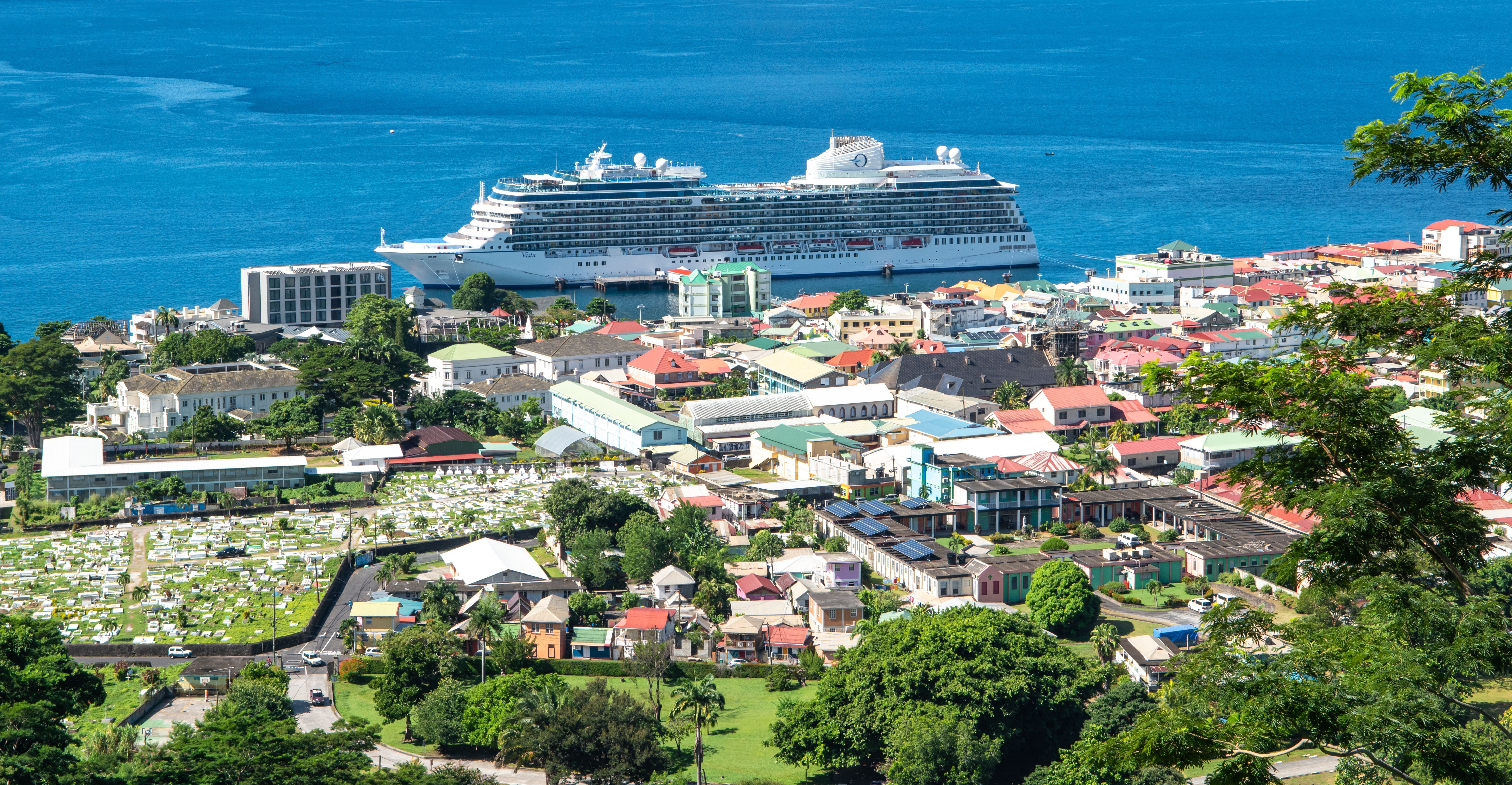
An island nation of volcanic springs, waterfalls, and underwater cliffs, Dominica offers Caribbean passports in exchange for a USD 200,000 investment in real estate or the Economic Diversification Fund.
If you are applying for passports with 3 additional family members, the initial investment increases by USD 50,000. This applies only to the donation to the Economic Diversification Fund. Those purchasing real estate pay government fees after their application is approved:
- main applicant: USD 75,000;
- applicant and up to 3 family members: USD 100,000;
- each additional dependent under 18: USD 25,000;
- each adult dependent: USD 40,000.
Regardless of the program chosen, all foreign nationals undergo a comprehensive background check, which requires an additional fee: USD 7,500 for the primary applicant and USD 4,000 for each applicant over 16 years old. Passports are issued 3-6 months after application submission.
Grenada
A Grenadian passport is issued in exchange for an investment of at least USD 235,000. This amount is for a family of up to 4 people and must be invested in the National Transformation Fund. Alternatively, you can invest in real estate. In this case, you must initially pay USD 270,000 for the property and a USD 50,000 government fee.
Keep in mind that there are additional costs involved. In both cases, you will be charged fees for each applicant. These fees are listed below:
- comprehensive Due Diligence: USD 5,000;
- application submission and processing: USD 3,000;
- interview: USD 1,000.
Grenada citizenship applications are processed within 60 days and cannot be expedited.
Saint Lucia
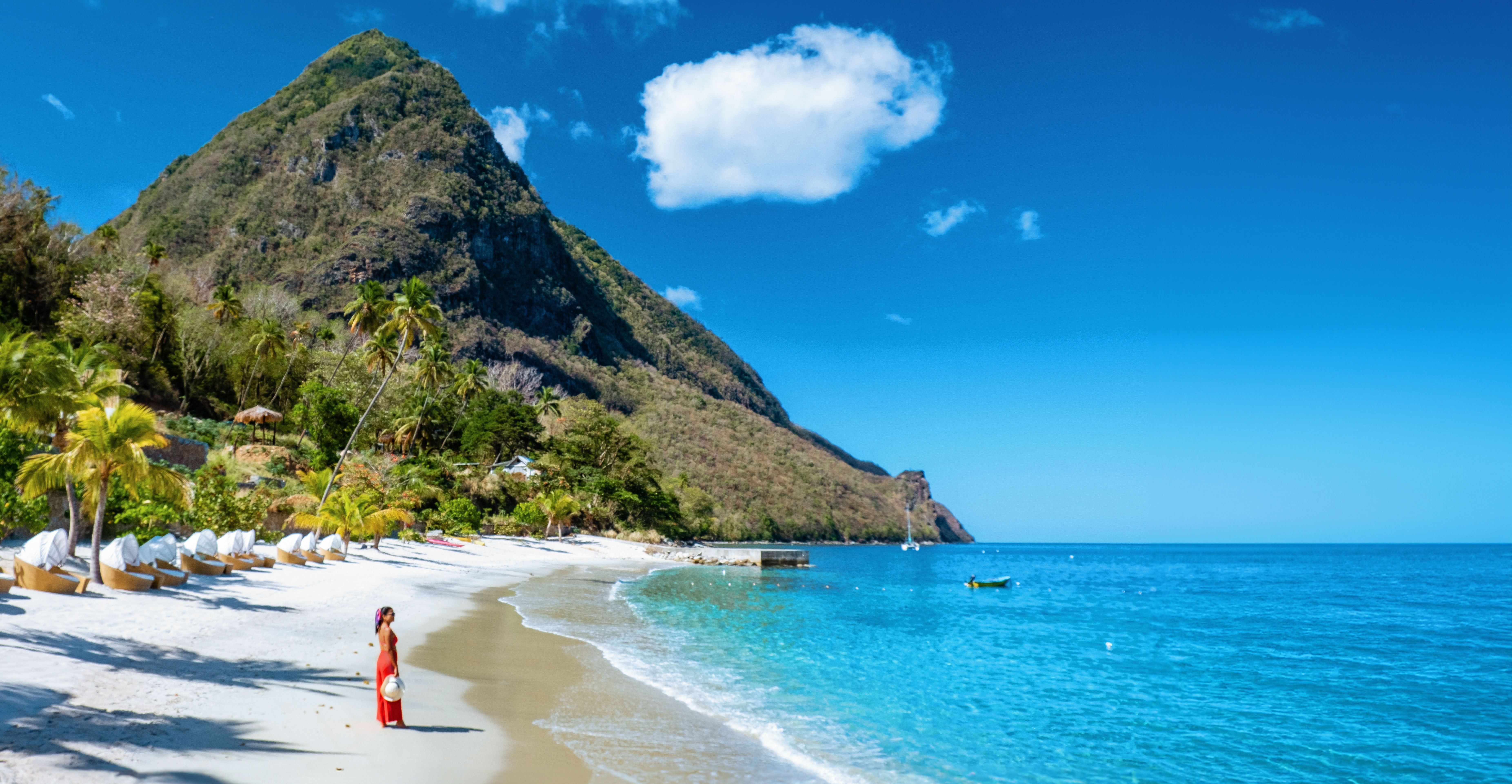
The island nation of Saint Lucia is renowned for its Sulphur Springs, an active volcano that can be reached by car, and for serving as a filming location for multiple scenes from the popular film Pirates of the Caribbean. You can obtain Caribbean citizenship by making a voluntary donation of USD 240,000 to the National Economic Fund. Other options include investing USD 300,000 in government bonds or real estate or investing USD 250,000–USD 6,000,000 in local businesses. Those investing in businesses or apartments/houses must also pay an administrative fee of USD 15,000 or USD 30,000, respectively.
An additional fee is required for each relative who wishes to obtain Saint Lucia citizenship (excluding investments in government bonds). For example, when donating to the National Economic Fund, you pay an additional USD 35,000 for your spouse, USD 10,000 for each minor child, and USD 5,000 for each newborn child. The amounts vary depending on the chosen investment program.
The exotic country of Saint Lucia grants citizenship within 90 days of submitting an application.
Caribbean passport comparison table
Those planning to obtain citizenship in Caribbean countries should keep in mind that, although these countries are located in the same region, the terms of their investment programs differ. There are variations in the amounts, processing times, and opportunities offered by each passport.
| Country | Minimum contribution to the fund, $ | Minimum real estate investment, $ | Minimum processing time for citizenship, months | Number of visa-free destinations |
|---|---|---|---|---|
| St. Kitts and Nevis | 250 000 | 325 000 | 4 | 146 |
| Antigua and Barbuda | 230 000 | 300 000 | 2 | 143 |
| Dominica | 200 000 | 200 000 | 3 | 135 |
| Grenada | 235 000 | 270 000 | 2 | 138 |
| Saint Lucia | 240 000 | 300 000 | 3 | 139 |
How to obtain a Caribbean passport in 2026
The steps to obtain Caribbean citizenship include:
- Select a program.
Review the requirements of each country and choose the best option for you. Pay attention to the minimum investment amount, government fees, which family members can be included in the application, and any additional fees. - Sign an agreement with an agent.
Foreigners cannot apply for citizenship independently. The entire process is carried out through a licensed agent. A list of authorized companies is usually available on the official website of the investment program. You can contact the companies by phone or email. - Prepare the necessary documents.
A licensed agent will provide you with a complete list of documents. In any case, however, you will need to provide your passport, a certificate of no criminal record, proof of the legal origin of your funds, and receipts for payment of all government fees. You may also need to undergo a medical examination and submit the relevant certificate. All documents must be notarized and translated into English. - Due diligence and interview.
Each investor undergoes a multi-level background check. Caribbean authorities must verify that applicants provide genuine documents, have no criminal record, are not associated with terrorist or other prohibited organizations, and have legally earned the money they wish to invest in exchange for a passport. This stage also includes an online interview. - Application approval and investment.
Applicants who successfully pass the due diligence check are notified by a licensed agent of the approval of their application. Then, they can make the investment. For example, the applicant can complete the purchase and sale of real estate and register the title deeds. - Obtain citizenship status and passport.
Once the investment has been made, the licensed agent submits documents verifying the transaction. The country’s authorities then issue a citizenship certificate, and the agent requests a passport based on this certificate. The document is mailed once it is ready.
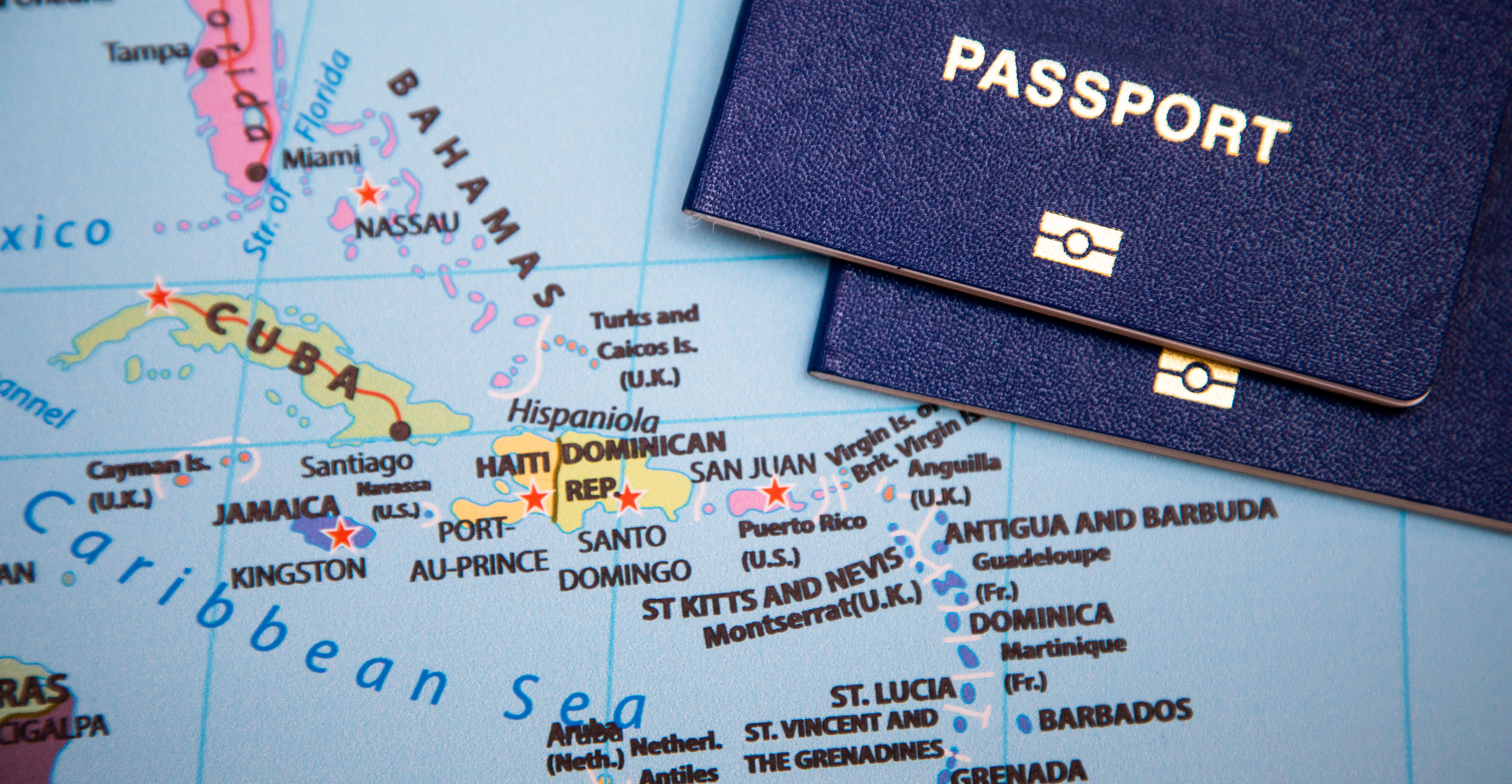
The benefits of a Caribbean passport
It is often sought after by those who want to protect themselves and their assets and have a «Plan B». In the event that the situation at home becomes unfavorable, it allows you to quickly move abroad with your family.
A Caribbean passport is ideal for those looking to optimize taxes and simplify international business, as countries in this region that offer investment programs are offshore zones. With citizenship status, you can easily become a local tax resident, meaning you won’t have to pay property, capital gains, or personal income taxes. Incidentally, tax optimization isn’t limited to the Caribbean. In Vanuatu, for example, you’re exempt from most mandatory budget contributions.
Investment programs are often chosen by individuals who wish to maintain ties to their home country. Second citizenship is permitted in the Caribbean (not to be confused with dual citizenship, in which your rights are recognized in two countries simultaneously). Investors keep their original passport and can use the benefits of either document.
Caribbean citizenship grants visa freedom. Passport holders can travel visa-free to countries in the European Union and Latin America, amongst others. However, travel is only permitted for tourism purposes. For instance, it is not possible to settle in France, Germany, or another EU country without EU citizenship or a local temporary or permanent residence permit.
advantages of Vanuatu citizenship
- Additional jurisdiction for residence
- Tax-free zone
- Return on investment of at least 5% per annum
5 cons of Caribbean citizenship
Despite all the advantages of Caribbean citizenship, there are also disadvantages:
- Retaining citizenship.
Not all countries allow you to keep your citizenship if you don’t live in their territory. This means you must take at least one transatlantic flight. The required period of residence depends on the country’s laws. For example, in Antigua and Barbuda, it is 5 days over 5 years. - Strict checks.
Most participants in investment programs are rejected at the due diligence stage. Authorities in Caribbean countries thoroughly check the background of each applicant and the origin of their investment funds. - Reputational risks.
Some countries are already criticizing Caribbean citizenship-by-investment programs. For example, EU authorities have noted the lack of transparency surrounding such initiatives. In the future, Caribbean passport holders may lose their visa-free entry to the EU or face other sanctions. - Security.
Caribbean countries that offer citizenship by investment are not among the safest in the Americas. Furthermore, they are all islands, so there is always a risk of floods, tsunamis, and volcanic eruptions in some areas. - Economic instability.
The economies of these countries depend directly on tourism and investment. External crises and global political changes can diminish the strength of their passports. - No need to wait several years for a passport
- Visa-free access to a large number of countries
- Tax breaks and simplifications for businesses
- Citizenship for the whole family

When a Caribbean passport isn’t the right choice for you
If you don’t plan to obtain a second citizenship, but rather want to permanently relocate abroad — for example, to an EU country — it’s worth considering the immigration programs of Spain and France. In these countries, you can obtain a residence permit by starting a business or demonstrating financial independence.
Obtain citizenship through investment

Leave an application and get a consultation specialist


